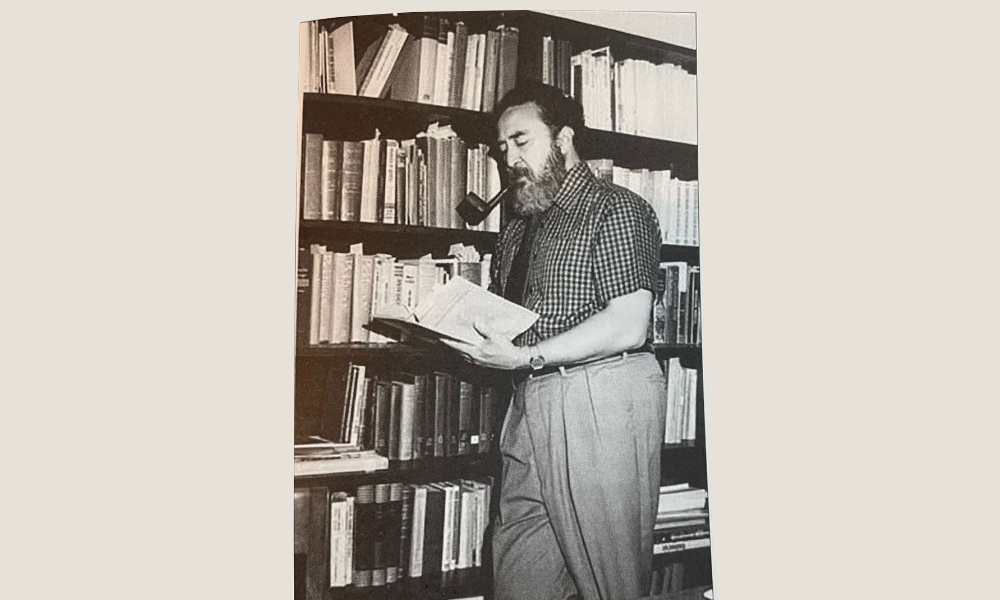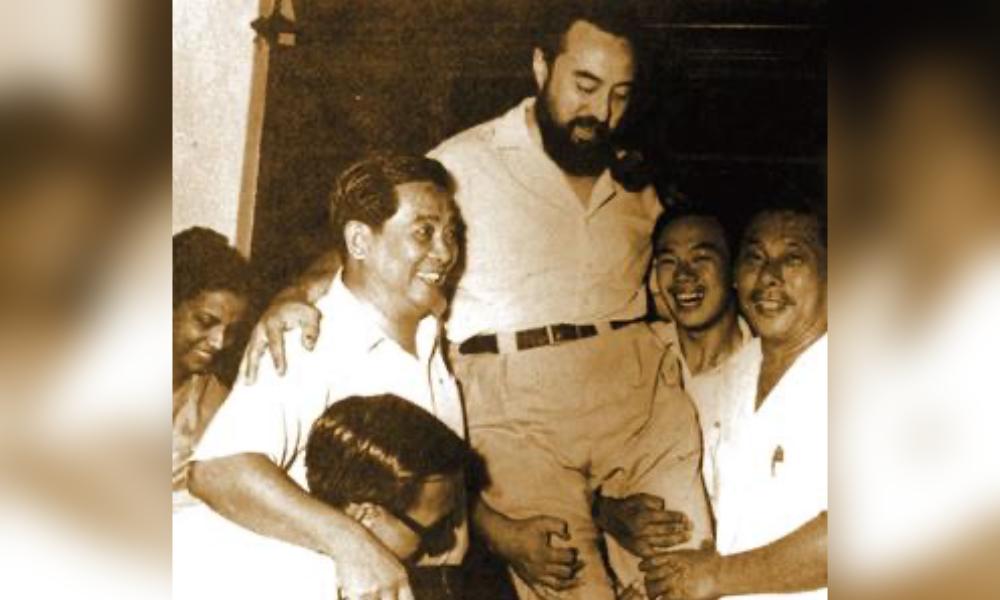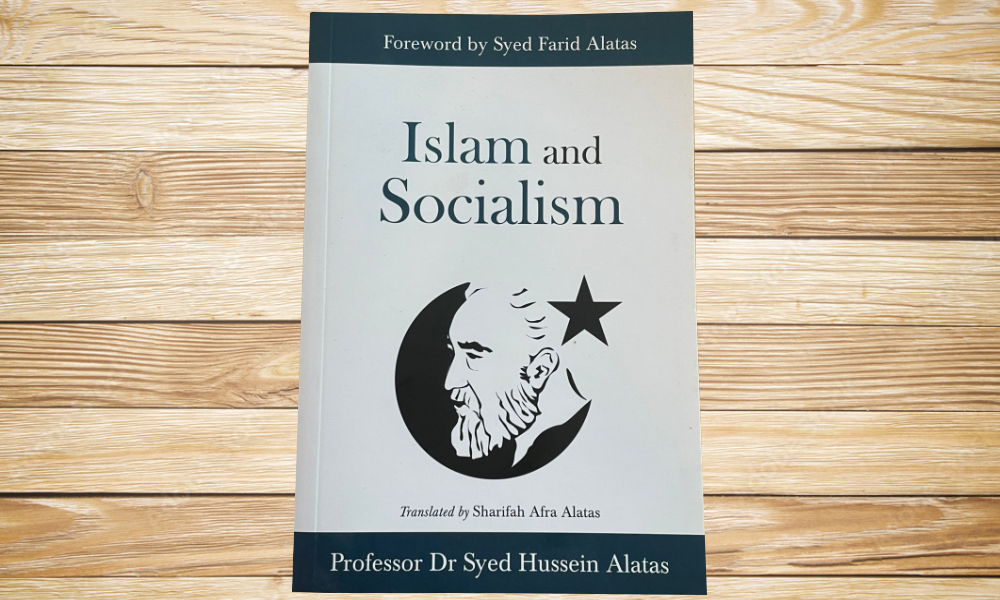BOOK REVIEW | Firstly I should say that “The Life in the Writing” (Gerakbudaya, 240 pages) is not entirely a new book but an updated edition of a work first published in 2010.
Focussing on the literary side of academic/politician Syed Hussein Alatas (1928-2007), it is penned by his daughter Masturah and this revision boldly promises exclusive new content.
Rather than give us a straightforward and perhaps “heavy” linear biography of the man, the narrative is presented through different vignettes that allow us a close-up look at the man and his ideas.
I thoroughly enjoyed the series of sketches that focus on his work as a writer and also help fill in the canvas with splashes of colour from various aspects of his life.
From staying up late to support West Germany at the football World Cup to calling Hang Tuah a thug. From a beard that earned him Fidel Castro comparisons to the ever-present pipe.
Then there’s a chance meeting between the author and acclaimed academic/writer Edward Said. Also excerpts of Syed Hussein’s poetry and prose. Even a UFO sighting!
Everything helps us build a picture of the man and it occurs to me that while many may know his name, few are familiar with his work and accomplishments.

Essentially, he was a man of letters. Born in Bogor, Indonesia of mixed Middle-Eastern descent (Yemeni and Circassian ancestry is cited), he furthered his education in Holland before returning to lecture in philosophy, sociology, and Malay studies at Universiti Malaya and the National University of Singapore.
He eventually replaced his cousin Ungku Abdul Aziz as vice-chancellor of Universiti Malaya in 1988, serving for three years, although Masturah goes out of her way to emphasise that it’s still an unanswered question as to why his tenure was brief.
Delving into politics
He was also one who put his ideas into practice by diving into politics as founding president of Gerakan in 1968 when it was a progressive, multiracial offshoot of the Labour Party of Malaya.
Gerakan won Penang in the ill-fated 1969 elections and Syed Hussein was appointed to the Dewan Negara. However, he quit both party and the senate when Lim Chong Eu steered Gerakan into joining BN.

He then founded another social-democratic party called Pekemas with Gerakan MPs Dr Tan Chee Khoon, V David, and V Veerapen in 1972. However, this party floundered and eventually crumbled under the weight of defections to DAP in the late 1970s.
He later joined Berjasa in 1982 as supreme council member but left the following year because it swung towards right-wing Islamic politics.
Literary legacy
He founded a journal called Progressive Islam at the age of 26, but its fair to say his reputation as a writer rests primarily on “The Myth of the Lazy Native”, and Masturah even takes us through the rigmarole he had to endure to get it published.
The book, first published in 1977, is an astute critique of the colonial stereotypes used to characterise natives of the Nusantara archipelago.
He characterises the function of such sweeping negative judgments of the people as having the effect of reinforcing colonial propaganda and capitalist exploitation.
Incidentally, another of his books “Islam and Socialism” (1976) was my introduction to his way of thinking. A non-Marxist socialist, he certainly cut an interesting figure.

I have been fortunate enough to discuss the “Islam-socialism” paradigm in private with former PSRM leaders Kassim Ahmad and (his namesake) Syed Husin Ali and even former Communist Party of Malaya chairperson Abdullah CD, and I do regret not meeting Syed Hussein Alatas and having the same debate.
While reading this book, I asked his other daughter Munirah how she would describe her father’s politics and she replied:
“Definitely a socialist, but not critical of capitalism, just critical of extremism, whether in religion or materialism.
“Us children consider him a moderate socialist who believes in the need for religion (Islam) as a moral guide for leadership/society,” she said.
It’s worth noting that Syed Hussein also wrote several books on the social impact of the scourge of corruption, although I must confess that I have not read any of them yet.
To me, Masturah’s book captures another fascinating intellectual left by the wayside while the Malay hegemony gives us markedly less profound thinkers, with a critical process limited by an obligation to be loyal to feudalism and theocracy.
The identity and personality politics of today see them looking for defenders of race and religion against non-existent threats and spewing up bigoted leaders like Dr Mahathir Mohamad and Abdul Hadi Awang.
The fact that Zakir Naik, Papagomo, Ibrahim Ali, and other dangermen are playing a greater role in shaping young Malay minds today is a travesty.
This is a man whose life and ideas should not be forgotten, and this book is a good place to start your discovery. - Mkini




No comments:
Post a Comment
Note: Only a member of this blog may post a comment.